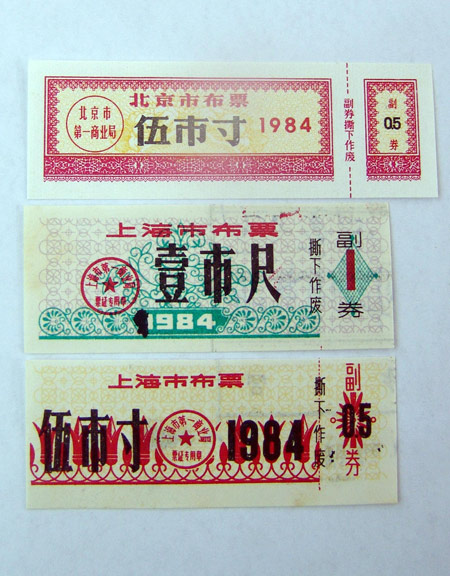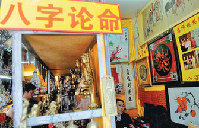Collector opens coupon museum
By Li Yang ( China Daily ) Updated: 2014-03-26 09:48:39
 |
|
Cloth coupons collected by a citizen in Zhengzhou. [Photo by Sha Lang/Asianewsphoto] |
"It took me up to two years to 'buy' enough cloth to make a pair of trousers. So it was a practice that clothes, which were all of similar styles and color, were public property shared by the whole family."
And different supplies beget different demands.
"People preferred fat pork to lean meat then because the housewives could obtain lard oil from the fat, which could be distributed more meagerly and evenly each day throughout a month," Wang says, resting her eyes on a 50-gram pork coupon.
"Soldiers' family members were respected and often enjoyed preferential treatment. So some people lied to the butcher shop assistants that they came from soldiers' families. The assistants would slant their cleavers and cut more fat."
Li's two children worked as migrant workers in the other cities and have no interest in their father's collection. Li says he still has not decided what to do with his huge collection after his death. "I may donate them to the city museum one day."
A bigger concern for him is that his house is located near a large chemical factory. The smelly exhaust gas discharged by the factory may damage the paper coupons he stored at home.
He has written down a 100,000-word introduction on hundreds of his rare coupons. "While writing the brochure, I get lost in my memories," Li sighs.
"The rationing system has its historical context. I am not a critic of Mao Zedong, nor an eulogizer of Deng Xiaoping. Bearing the past in mind can help us strive for a better future."
Huo Yan contributed to this story.
|
|
|
|
|
|
|
|























 Raymond Zhou:
Raymond Zhou: Pauline D Loh:
Pauline D Loh: Hot Pot
Hot Pot Eco China
Eco China China Dream
China Dream China Face
China Face





